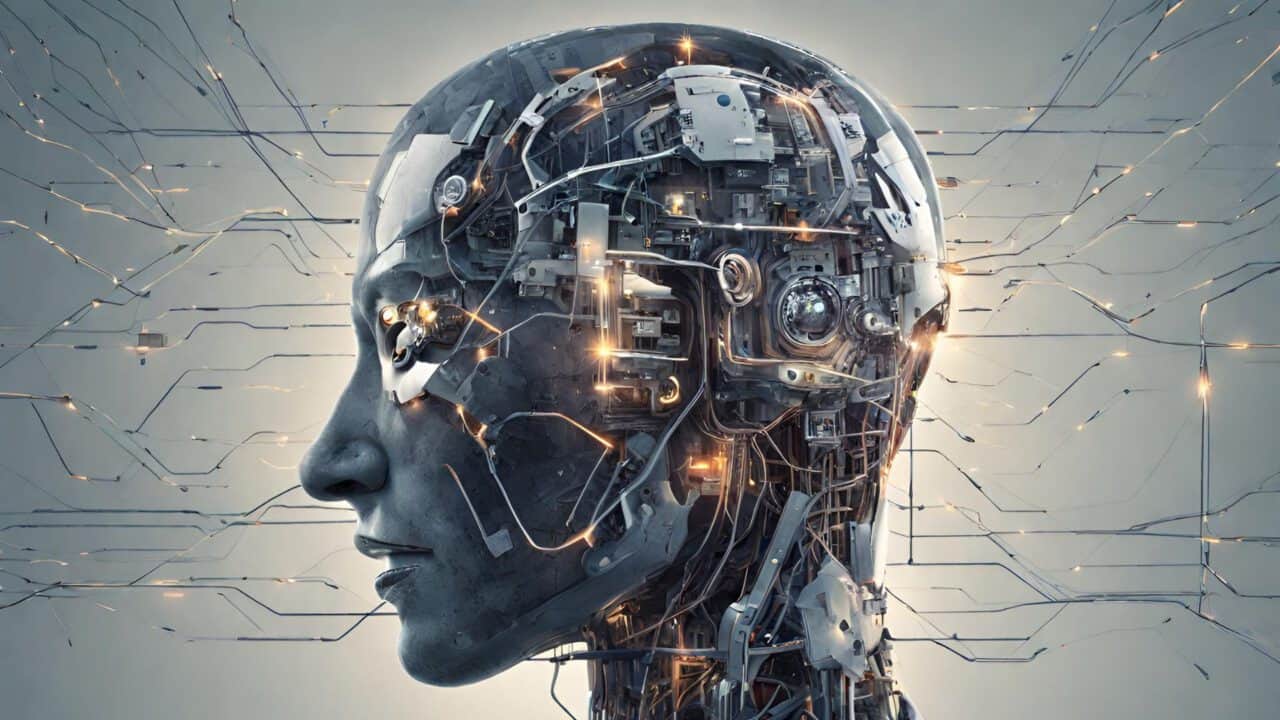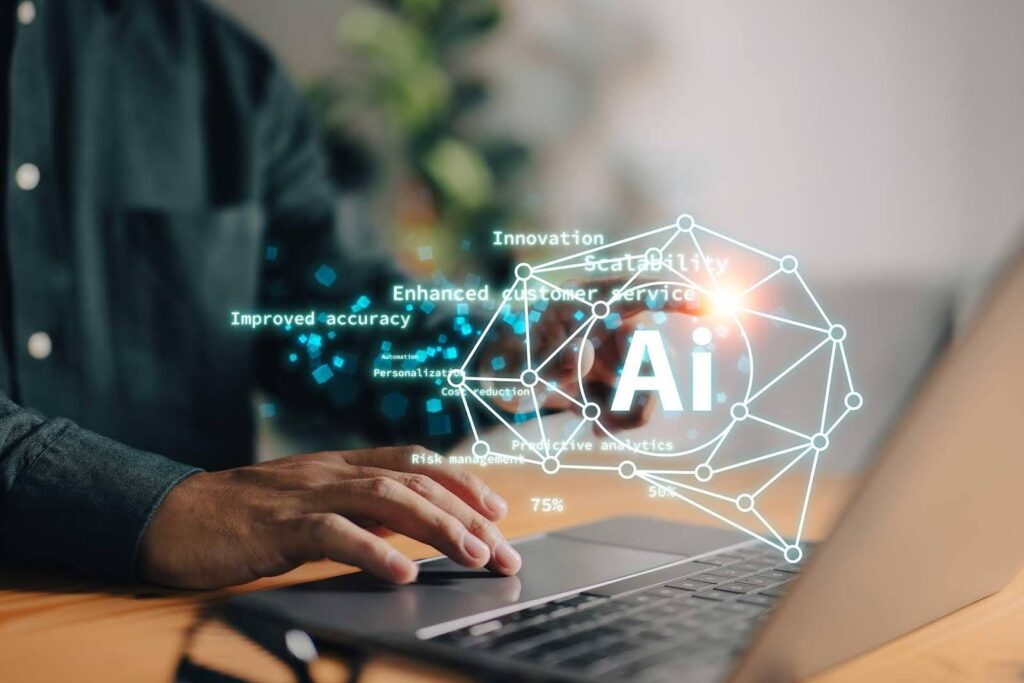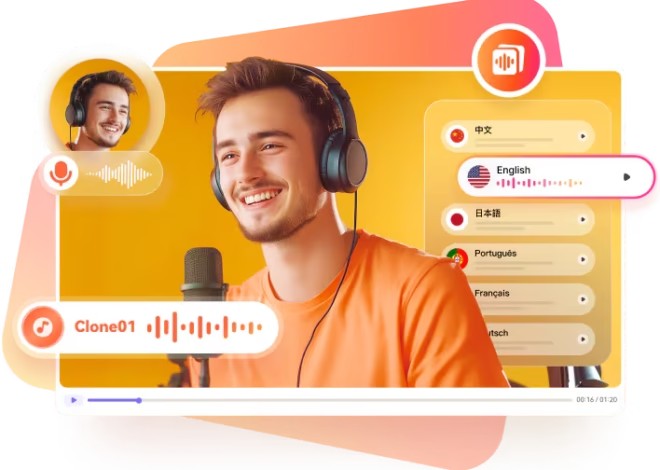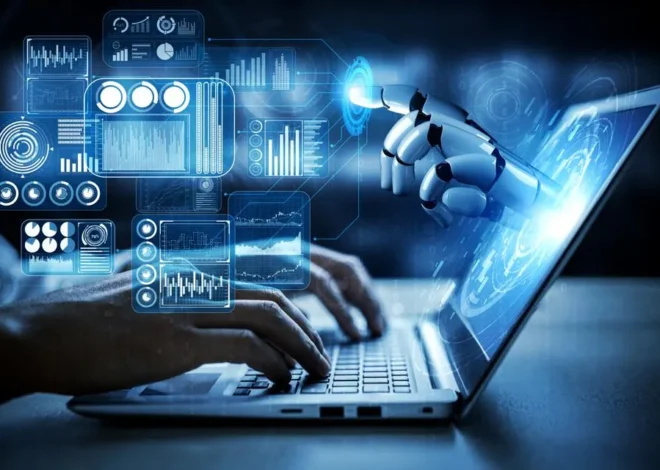
The Future Is Here: How AI Is Revolutionizing the Modern World
In recent years, the rise of AI has transformed almost every aspect of our lives. From the way we communicate to how we work, learn, and make decisions, AI is no longer just a futuristic concept — it’s a present-day reality shaping industries and societies across the globe. What was once considered science fiction is now powering real-world solutions. In this article, we’ll explore the power, impact, and future of AI, while understanding why it’s one of the most significant technological advancements of our time.
1. What Is AI?
AI, short for Artificial Intelligence, refers to the simulation of human intelligence in machines. These machines are programmed to think, learn, and make decisions like humans. Unlike traditional software, AI systems can analyze massive amounts of data, recognize patterns, and improve their performance over time without human intervention.
2. A Brief History of AI
The concept of AI dates back to the 1950s when scientists first began exploring the idea of creating machines that could “think.” Over the decades, advancements in computing power and data collection have allowed AI to evolve from simple problem-solving programs to complex systems capable of deep learning, natural language processing, and real-time decision-making.

3. How AI Is Changing Industries
One of the biggest impacts of AI can be seen in how it’s reshaping industries around the world. In healthcare, AI assists doctors in diagnosing diseases earlier and more accurately. In finance, AI algorithms detect fraud and automate trading. In retail, AI helps personalize customer experiences and improve supply chains. The possibilities are nearly endless.
4. AI in Everyday Life
Many people interact with AI every single day without even realizing it. Voice assistants, recommendation systems on streaming platforms, spam filters, navigation apps, and even smart home devices are powered by AI. This seamless integration shows how AI has become a part of our daily routines.
5. The Role of AI in Education
Education has seen a massive shift with the introduction of AI. Intelligent tutoring systems, personalized learning platforms, and automated grading tools are making education more accessible and efficient. AI helps students learn at their own pace and gives teachers valuable insights into student performance.
6. AI and the Job Market
There’s a common concern that AI will take away jobs, but in reality, AI is also creating new opportunities. While some repetitive tasks are being automated, AI also opens doors for roles in programming, data science, cybersecurity, and creative problem-solving. The key is learning to work alongside AI, not against it.
7. Ethical Challenges of AI
As powerful as AI is, it also comes with ethical challenges. Questions about privacy, bias, transparency, and accountability are becoming increasingly important. If AI is to be used responsibly, strict guidelines and ethical standards must be developed and followed globally.
8. AI in Healthcare
AI has the potential to save lives. From predicting disease outbreaks to analyzing medical images faster than humans, AI is enhancing the healthcare sector. For example, AI can help detect early signs of diseases like cancer, enabling quicker treatment and better outcomes for patients.
9. AI and Creativity
Interestingly, AI isn’t limited to data and numbers. Today, it’s being used to create art, music, and literature. AI tools can write poems, generate digital paintings, and even compose songs. This fusion of human creativity and machine intelligence is unlocking new artistic possibilities.
10. AI in Transportation
The transportation industry is undergoing a revolution thanks to AI. Self-driving cars, smart traffic management systems, and predictive maintenance are making travel safer and more efficient. As AI continues to improve, we can expect fewer accidents and more sustainable transportation systems.
11. AI in Business
Businesses are using AI to streamline operations, analyze markets, and improve customer service. Chatbots powered by AI are available 24/7, helping customers with their queries. AI also assists in marketing by analyzing customer behavior and predicting trends, giving businesses a competitive edge.
12. The Future of AI
The future of AI looks incredibly promising. Experts predict that AI will continue to advance in areas like robotics, quantum computing, and personalized medicine. However, this growth also demands responsible innovation to ensure AI benefits humanity as a whole.
13. AI and Cybersecurity
With increasing digital threats, AI plays a crucial role in cybersecurity. It can detect suspicious activities, predict potential attacks, and protect sensitive data more efficiently than traditional methods. This makes AI an essential shield in our increasingly connected world.
14. How Governments Use AI
Governments are adopting AI for various purposes such as improving public services, urban planning, and national security. AI can analyze vast amounts of data to make smarter decisions for cities, health programs, and economic strategies.
15. The Power of AI in Agriculture
Agriculture is another sector reaping the benefits of AI. Farmers use AI to monitor crop health, predict weather patterns, and manage resources efficiently. This leads to better yields and more sustainable farming practices, which are essential for feeding a growing population.
16. AI and Climate Change
AI can also help fight climate change by analyzing environmental data, optimizing energy usage, and predicting natural disasters. It enables scientists and governments to make smarter, faster decisions that can protect the planet.
17. Why AI Skills Are in High Demand
As AI continues to grow, professionals with skills in AI programming, machine learning, and data analysis are in high demand. Learning these skills can open the door to exciting and well-paying career opportunities.
18. Misconceptions About AI
There are many myths about AI — some people fear it will take over the world. In reality, AI is a tool created and controlled by humans. When used responsibly, it enhances human abilities rather than replacing them.
19. How to Learn About AI
Learning about AI has never been easier. Online courses, workshops, and universities around the world offer programs in AI and machine learning. Anyone with curiosity and dedication can start their journey into this powerful technology.
20. Conclusion: Embracing the AI Revolution
The rise of AI marks a new era of innovation, efficiency, and possibility. It touches nearly every aspect of modern life — from healthcare to business, education to art. By understanding its potential and using it responsibly, humanity can harness the true power of AI for the greater good.

